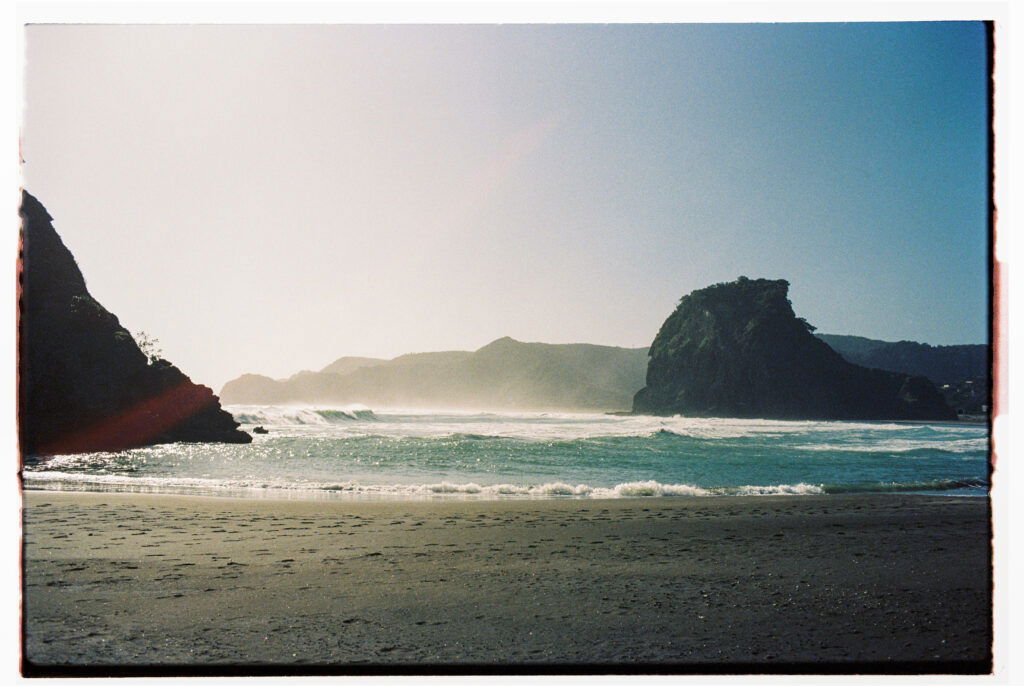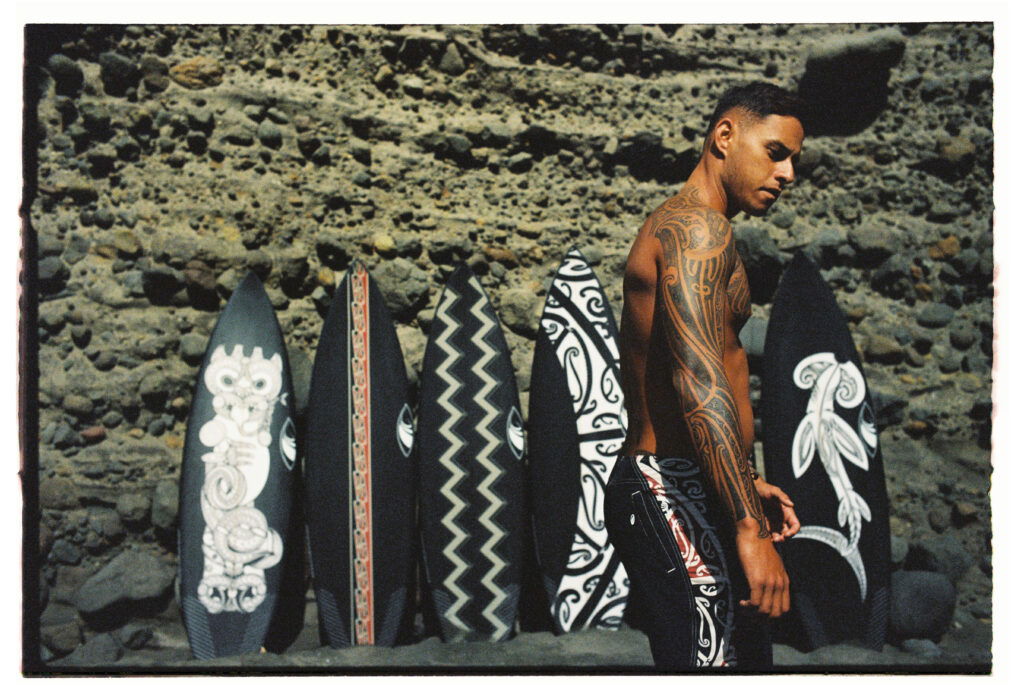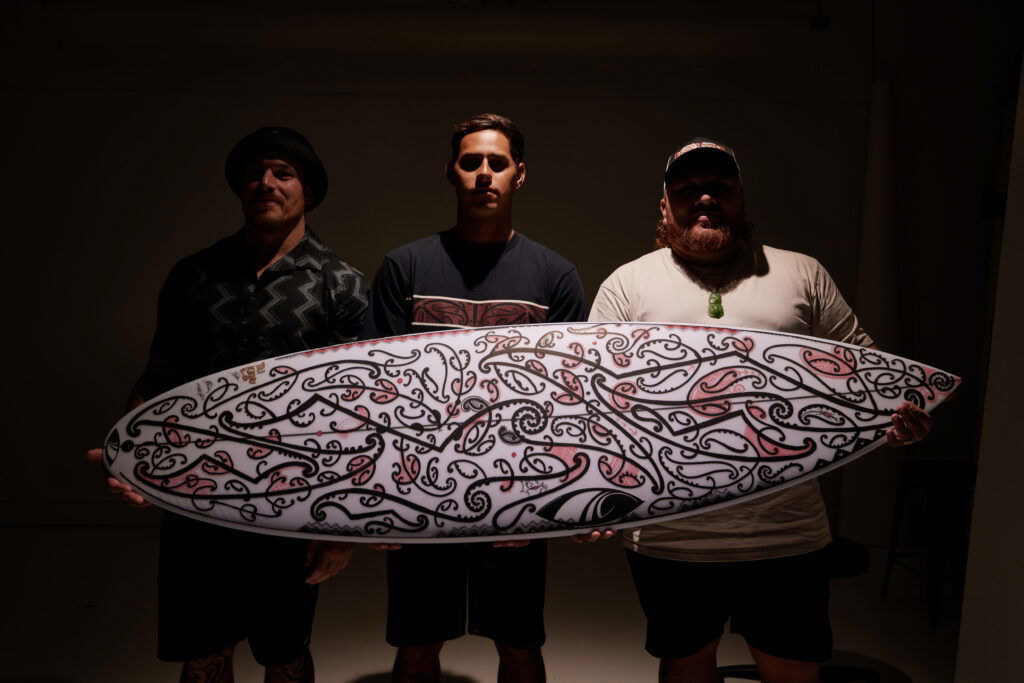“We’ve Got A Head Start On Surfing Thanks To Our Ancestors”
Māori surfer Kehu Butler talks his Polynesian heritage + his new collection with Quik.
Produced in partnership with Quiksilver Australia.
“People think the ocean separates us, but for Polynesians, the ocean is what connects us. We’ve got different instincts when it comes to the sea, which is why Hawaii feels so familiar,” explains Māori surfer Kehu Butler. He’s in Kauai when we speak, stressed by the soundtrack of roosters crowing in the background.
Since forging a relationship with fellow Polynesian surfer Mainei Kinimaka, Kehu has called Kauai his second home. Despite there being 4,760 miles (7,660 kilometers) separating his home in Tauranga, NZ and Mainei’s in Anahola, Kauai, the parallels are vast.

“After I quit doing the Challenger my partner basically told me to do whatever I wanted, so I thought, ‘sweet,’ and came here. It was my first time in Hawaii last year, and I loved everything — the people, the waves, the welcoming vibe. It made me realize how much I wanted to travel through Polynesia and really understand who we are. Since then we’ve traveled all over Polynesia — to Tahiti and Rarotonga, where Polynesians first lived before they migrated north to Hawaii and south to New Zealand. It’s been a journey of learning about ourselves and our origins,” he says.
As a charming side story, when Kehu’s legendary grandfather, Te Kehukehu Butler Sr. — recognizable by his eye patch, bone earring, traditional Māori face tattoos, and snow-white beard — met Mainei’s father, Titus Kinimaka, the connection was instant. “Those two were glued at the hip,” Kehu laughs. “They’re like mirror images of each other — full of knowledge that the rest of us don’t even know exists. It was like watching long-lost brothers reunite.”
Thanks to his deep Polynesian roots Kehu is treated kindly in Kauai’s lineups as a visitor. “Our people look identical. People come up, shake my hand, let me have the inside. The secret? Just be real quiet, and no one can tell where you’re from,” he laughs. “Nah, even when I do talk though, they think of us as siblings because their Polynesian roots are pretty strong.”

Kehu doesn’t mince his words when asked why he stopped competing. “I was surfing bad waves in contests for so long, and I just got tired of it,” he says bluntly. “Ever since I got sponsored by Quiksilver as a nine year old, all I wanted was to surf, get barreled, and get paid for it. Everyone else wanted to be an All Black. But for me, it was always gonna be surfing or the shovel.” Needless to say, doing a signature collection with Quiksilver after an 18-year partnership is a huge milestone.
“Surfing is still new for many Maori. For us, we are super heavy in Waka Ama, which is paddling on the canoes. Waka is also huge in Tahiti, the Cook Islands and here [Hawaii] which is cool. Before wetsuits surfing in NZ would’ve been freezing. So paddling was one of our main sports on the ocean.”

“We’re so tapped into the ocean, and I want to show that pride. It’d be awesome to see more Polynesians in surfing — whether in competitions or just free surfing. If we had a full team of Polynesians, we’d actually have the most tapped-in crew – Zeke [Lau], Imai [Devault], and Matahi [Drollet]. I just want to show young Polynesians that anyone can do it. We’ve got a head start thanks to our ancestors, who taught us how to understand and respect the ocean.”
One way Butler puts his heritage on display is through his work with Quiksilver, including his latest Tai Kehu collection. Having worn the iconic mountain and wave logo for 18 years, this collaboration comes from a long-standing relationship, and holds a deep personal meaning. His grandfather narrates the film and one of the traditional Tā Moko artists involved, Maia Gibbs comes from the same iwi. “When you’re from the same iwi, you’re just instant family. No matter how distant you are, you call everyone family and you tell them you love them,” explains Kehu.

Butler’s new collection with Quiksilver is a visual ode to his Polynesian heritage and features many Māori elements such kowhaiwhai patterns and symbols such as the koru — the swirling well left by a paddle’s movement through water, symbolizing change and personal growth. “We also included the Mangopare, which represents the hammerhead shark — a symbol of resilience and a never-give-up mentality. When designing, we wanted to reflect that spirit. The ocean is always changing; you’ll never catch the same wave twice. So when you’re out there, you need to be resilient and patient because anything can happen.”


















Comments
Comments are a Stab Premium feature. Gotta join to talk shop.
Already a member? Sign In
Want to join? Sign Up